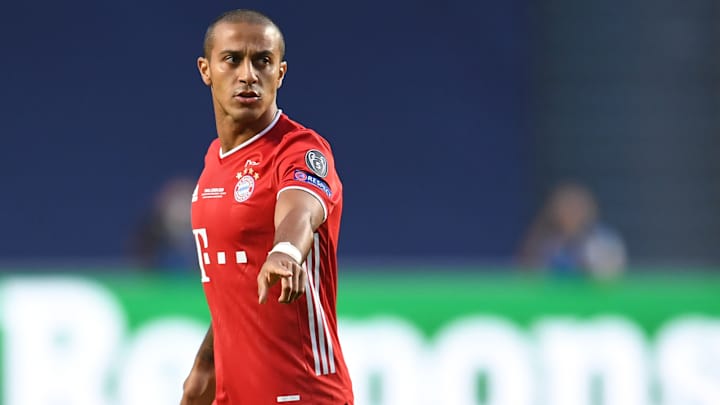What Thiago's Arrival Means for Liverpool

The problem when you have a great team that has achieved great things is where you go next. As Liverpool’s (statistically) most successful manager Bob Paisley knew, football is a game of constant evolution: stand still and you go backwards. He may have worn a cardigan and carpet slippers, but Paisley was as ruthless a leader as they came, never given to sentimentality and always pruning and developing. And that perhaps explains the twitchiness of Liverpool fans recently: for Takumi Minamino to have been the biggest signing over the past two seasons felt like inviting trouble.
Tottenham’s problems toward the end of Mauricio Pochettino’s tenure are evidence of the dangers of too much stability in a squad. Pochettino himself complained about the dangers of staleness, of a squad growing old together and becoming too familiar with a manager’s methods. One of Jurgen Klopp’s great achievements as Liverpool manager was to produce a side of players that has peaked almost simultaneously, amassing 196 points over the past two seasons, but the danger of the approach is that age can suddenly claim a tranche of players declining simultaneously.
The market has become a bizarre end unto itself for some fans, and it may be that many of those demanding signings are seeking the quick hit of seeing a big name sign a contract for their team. But the problem of stagnation is real enough, and one of the great skills of management, at least for those who look to stay more than two or three years, is knowing when to make changes.
The question for Klopp was where to make changes in a side that is so coherent and so well-balanced. James Milner is the only regular first-teamer anywhere near the end of his career. In such cases, the question becomes less about which players need replacing than how the style may be tweaked. And that’s where the signing of Thiago Alcântara, who will be joining from Bayern Munich on a four-year contract for a fee that can reach up to $35 million, is so fascinating.
To an extent this is an opportunistic deal. Thiago is 29, and so he does not make the squad younger. Nor does he fit Fenway Sports Group’s stated policy of signing players young so they can be sold later at a profit if they don’t quite fit in. But after seven years at Bayern, Thiago wanted a new challenge and so was available relatively cheaply.
Thiago also allows Liverpool to tweak the makeup of its midfield. Liverpool's great strength has been its pace and power, the muscularity with which it has regained possession. It has felt that after several years in which the dominant mode at the highest level of the European game was a possession-based game rooted in the example of Pep Guardiola’s Barcelona there had been shift to physicality, to regaining rather than retaining possession. Liverpool has become the master of that.
Thiago, though, having come through at Barcelona under Guardiola and then spending four years with him at Bayern, is a reversion to that more-possession-based game. As he showed for Spain against England in a friendly in Alicante in 2015, Thiago can torment sides with his passing, while he is also an adept dribbler, more technically gifted than any in the present midfield. His presence in the central three can, perhaps, enable Liverpool to control games more, rather than constantly playing at a high tempo. Seven years in the Bundesliga, particularly these last few months under Hansi Flick, means that he is used to fitting into a more percussive side.
The one remaining question is what this might mean in terms of exits. Liverpool had suggested that it wouldn’t be adding a midfielder until the future of Georginio Wijnaldum, whose contract expires next summer, had been resolved. The Dutch midfielder is understood to be a target for Barcelona, whose manager Ronald Koeman, has coached Wijnaldum at the international level. That potential deal, though, seems to have stalled, and Liverpool has swooped for Thiago anyway, eager to bring in a new man to integrate him as soon as possible.
Given the congested calendar, having an extra midfielder is probably not the worst precaution to take, anyway. And if Thiago can help slow the game down and give Liverpool control without constantly having to play its habitual high-octane game, that can only ease the physical strain as well. But it is intriguing that Klopp, having seemingly gained a tactical edge, has opted to develop that by taking what appears to be, in theory at least, a step backwards.

An accomplished author of multiple books, Jonathan Wilson is one of the world’s preeminent minds on soccer tactics and history.